Description
Breaking New Grounds:
The Doctor, The Lawyer and The Journalist
[Review of Volume 9]
I will like to thank Mrs. Patricia Otuedon-Arawore for giving me the privilege to review the ninth Volume of the Hallmarks of Labour. Let me first acknowledge her passion and her work in identifying men and women of honour that have made Nigeria proud and the type of whom we need to celebrate and hold up for younger people to emulate. I am particularly honoured to review this book about three people I have known all my life and can confidently call Aunty and Uncle. I, in particular, remember Alhaji Jakande‘s Thursday visits to our house in Ibadan and his love for Amala which we would have for him on the table piping hot without fail. I also remember his presence at my wedding in 1983. Professor Lucas was known to me as someone who travelled a lot and then after a while he disappeared abroad and I was not to know where till many years later! Chief Mrs.Solanke who has not lost her style is my friend’s mother and my mother’s friend. She was always so elegantly dressed, very disciplined and very busy. We knew that we had to have done our home-work before playing around her!
Reading through this book, one is struck by the common chord of integrity, strength of character and tenacity that underpins the achievements of our three celebrants. They are truly great Nigerians. It also brought to my mind that we that grew up around them did not fully appreciate how great they are.
Mrs.Otuedon-Arawore has dedicated this edition to her mentor and Chairman of Foundation, Emeritus Professor Umaru Shehu, CFR, CON, FAS, DFMC, HLR, a professor of Medicine, a former Vice-Chancellor of the University of Nigeria, Nsukka, former Pro-Chancellor of the University of Lagos and former President of the Nigerian Academy of Science — a most worthy and deserving Role Model.
Style
The ninth edition as in the previous eight editions begins with a Foreword written by an eminent Nigerian followed by 3 chapters each celebrating a role model. Each chapter is introduced with a Foreword written by an eminent Nigerian known to the celebrant, after which is a list of achievements, a short biography, a compilation of their public speeches, testimonials from professional colleagues, friends and family and ends with a brief insight into their family life: their emotional support system.
The celebrants in the ninth edition are: HE Alhaji LateefJakande, CON, HLR, a journalist, publisher, politician, former Governor and administrator; Professor Adetokunbo Lucas, OFR, MD, FRCP HLR,a professor of Medicine, Grandfather of Public Health, administrator; and Chief Olufolake Solanke, SAN, CON, HLR, teacher, lawyer, administrator and women’s advocate.
The chapters are written in an easy-flowing style, interjected with quotes from the celebrants. The inclusion of the speeches is a brilliant way to take us into the minds and souls of our role models and indeed into moments in our history as a Nation, when intellectualism and the common good underpinned public discourse and guided public service.
The Foreword to this edition was written by Emeritus Professor O.O.Akinkugbe who in his inimitable style captured the essence of our 3 role models with his intriguing and very aptly title “Good Wine Needs No Bush” and truly these men and woman of quality need no “Bush” (advertisement). Their deeds go before them and speak for them:
HE Alhaji Lateef Jakande, CON, HLR
Our first role model is a true Lagosian who was born on the 23rd of July 1929 to Chief Rahman Adeniyi Jakande of Epetedo, Lagos and Alhaja Sinote Aduke Jakande [Nee Akodu]. The foreword was written by Prof AkinlawonMabogunje, OFR, the Father of Geography in Nigeria, a close friend and confidant of the celebrant and a role model himself who gives a succinct summary of LKJ’s walk through life and gives an insight into the kind of man he is. One statement by Professor Mabogunje really spoke to the character of the man Jakande:
“Jakande’s public life has been a study in personal and public integrity. As a friend who was invited to help oversee his thriving private enterprise, the John West Group of Companies (packaging, printing & publishing), while he was in government as Governor of Lagos State, I was under strict instruction to ensure that the Group had no business dealing with the Lagos State Government. This was an instruction, which we obeyed to the letter such that in 1983 when the Military came back under Major-General Muhammadu Buhari and were harassing State Governors on their out-of-office activities, there was not much they could do on this score with Lateef”.
Reading through his chapter, I felt I was not only going through the achievements of Alhaji Lateef Jakande but taking a walk through his soul and the history of Nigeria. This chapter is powerful and reveals to you the way his mind works and the principles that underpinned his actions. It speaks of a man whose every career choice was based on service to the Nigerian people and, in particular, the economically vulnerable.
The chapter takes us through his early career as a journalist, through his years of political activism that earned him jail-time with Chief Awolowo to his tenure as Governor of Lagos and Minister of Housing of the Federal Republic of Nigeria. In all these areas he recorded great successes. Even as a journalist he was always driven by service and sought to build lasting structures and institutions such as the Nigerian Union of Journalists and Nigerian Institute of Journalism. The setting up of the Department of Mass Communication at the University of Lagos is also an example of his impact and achievement. To give you a little glimpse into his mind, I quote from him on why he moved from journalism to partisan politics:
“as a journalist, we are usually more involved in the goings-on in the country because as a member of the Fourth Estate, we were part of the process of nation-building … I got interested in partisan politics because of what I saw as the poor state of the people. Improving the welfare of the people was a major reason for joining politics”.
His achievements during his tenure as Governor earned him the name ‘Action Governor’ and ‘Baba Kekere’ (Chief Awolowo being ‘Baba Agba’). A theme that recurs as we read about his tenure and management style is his belief in those he appointed and respect for the separation of powers in governance.
As we continue reading through the mind and life of this value-based service-leader, the chapter speaks to an era when public service was driven by values and highlights the achievements recorded during his tenure that makes him till today extremely popular and well-loved in Lagos. This chapter highlights what is best in Politics and is an inspiration to young and upcoming politicians that a life of service is possible and worthwhile in Nigeria. His love of the common man and his passion for service are encapsulated in the speech he made on October 1, 1980 at the first anniversary of the civilian administration in Lagos State:
“Those of us who were elected to govern our people at this point in history have a wonderful chance to immortalize ourselves simply by lifting up our people from abject poverty, community neglect, deplorable housing, ignorance, and want. The needs of our people are simple. They do not want sky-scrapers. They do not ask for prestige-projects. They do not envy the genuinely wealthy. All they ask for are the basic necessities of life — shelter, good and adequate food, potable water, good roads, children’s education, healthcare, a decent wage, public transportation, and reasonable comfort”.
— Quintessential Jakande, the man of the people!
His love of writing and mastery of the craft laces this chapter of fine speeches and elegant writings by Alhaji Jakande and will be a rich resource for lovers of history and literature. His management style, the basis for the choice of those he appointed, and his ability to inspire those he led make this book a must-read, for administrators both in the public and private sectors. The chapter concludes with testimonials from former Governors, Journalists, activists, politicians and his family and a brief write-up about the home front. Through the family testimonials we get a view of LKJ, the family man who, though a disciplinarian,was loving, supportive and respectful of his children’s life choices. He is married to his love, friend and confidant,Alhaja Sikirat Jakande, our mama, who is always by his side.
Professor Adetokunbo Oluwole Lucas, OFR, MD, FRCP, FFPHM, FWACP, HLR
The Foreword to this chapter was written by no other than the erudite emeritus Professor of Medicine, Professor O.O.Akinkugbe, CFR, another Role Model. There could have been no better person to write this Foreword than him, and I suspect that the two men constantly bump into each other in the rarefied stratosphere where great intellectuals tread!
At the onset of the chapter is an intimidating list of awards — National and International — that have been given to Professor Adetokunbo Lucas, a Professor of Preventive & Social medicine and the Grandfather of Public Health in Nigeria.
The author takes us through his impressive genealogy, a long line of high achievers on both sides of his family tree. Early on it is obvious that his father had a profound impact on the way he would choose to live his life. Of his father The Revd. Jonathan Olumide Lucas, OBE, Professor Lucas had this to say:
“His life and achievements were not only an inspiration but also a challenge. If he could achieve so much with the limited resources at his disposal, I felt with all the advantages that he and my mother had provided for me, I should at least do as well as he did, if not better”.
And he went on to do just that. As the chapter moves through his early education to his professional training as a Doctor, one cannot but be awestruck by his outstanding scholarship. He passed the first MBBS with Distinction for which he was awarded the Tulloch Scholarship “for obtaining the highest marks”. He got a First Class in Physiology and later was awarded thePhillipson Prize for obtaining the highest marks in the 2nd MBBS exam. This was just the beginning of a life of achievements and awards. We also get insights into the encounters that shaped him and informed his career choices; for example, were it not for an incident that happened when he was 10 years old and the impact it had on his young mind, we would have lost this gem, this great man of Medicine to Law! Imagine that!
As we read through his biography we are struck by the continuously upward mobility of this role model. By 33 years of age, Professor Lucas had not only become a full Professor but had successfully midwifed and built a formidable Department of Preventive & Social Medicine to international standards and had developed significant collaborations with international organizations such as the World Health Organization, Rockefeller Foundation and many others — afeat many academics do not achieve in their life-time. Once he had delivered this “baby” to University of Ibadan, Professor Lucas was ready to move on and conquer new frontiers and so began his years in the international arena first as the pioneer Director of the WHO special programme on Tropical Disease Research where he spent 10 years. This quest to continuously break new grounds characterizes the next 2-3 decades of his life and is well articulated by him when he was asked to renew his tenure for another 5 years at the WHO Tropical Disease Research (TDR) Programme:
“The idea of just coasting along as the head of a smooth-running programme seemed rather dull to me”.
He went on to place his indelible footprints on various other international organizations and schools, including Carnegie Corporation of New York, Edna McConnell Clark Foundation, Governing Board, Global Fund, UNICEF, UNDP, the World Bank, USAID, DfID, Swedish Agency for Research Co-operation with Developing Countries [SAREC], Wellcome Trust Scientific Group on Tropical Medicine, Rockefeller Foundation, Carter Centre, Bill & Melinda Gates Foundation, Institute of Medicine of the US National Academy of Sciences, to name a few. Truly Inspiring!
The selection of speeches further shows the breadth and depth of his understanding of public health issues and the solutions to them. There is an impressive and intimidating list of testimonials which include Honorary D.Sc. degrees from various Universities such as University of Emory, Atlanta, Georgia University of Newcastle upon Tyne, and University of Ibadan, to name a few and ending with testimonials written by his family that portray the heart of this Scholar. Reading through the testimonials by his wife and children a picture is painted of a loving family man, supportive and motivating parent, a friend to his wife and certainly the love of his life considering that he had chosen her when he was only 4 years old!
Going through his biography it is possible to think that this man never had challenges, never faltered, but he did! Despite having Grade One at the Cambridge exams, he failed to get into University College, Ibadan though he then got admitted into Durham University.
One thing that shows clearly throughout this chapter is that this role mode is a man on a mission, a man with a formidable intellect, a man of ideas, a humble unassuming achiever with the spirit of an adventurer.
Chief Olufolake Solanke, SAN, OON, CON, FNIALS, HLR
Our third and final role model is a woman who has broken many glass ceilings. Chief Folake Solanke was born on March 29, 1932 to Chief and Mrs. Jacob Sogboyega Odulate. Chief Odulate was a pharmacist and entrepreneur and renowned for the production of ‘Alabukun’, an analgesic famous till today over 100 years on. She is the first female Senior Advocate of Nigeria. The Foreword to this chapter is written by The Venerable Godwin Bamidele Daramola, JP, Senior Chaplain, Chapel of Peace and Joy, Lead City University, Ibadan and a former Minister at the All Saints’ Church, Jericho, Ibadan, who not only chronicles her achievements and many firsts, but also testifies to her Christian life and service in the Church.
Her early life was marked by the loss of her mother before she was 2 years of age within a polygamous family with her father’s 6 wives and 12 other children. She, however, was not deprived of love and a happy family life. The strong influence in her early life definitely was her father who she described as “extra-ordinary … he ensured equal opportunities for all his children, irrespective of gender…”. She learnt early, good work ethics, by helping her father in his factory.
Going through the chapter her path to law was not direct but her academic excellence was evident from her childhood where she was a straight ‘A’ student coming first in every class and ending up with an early admission into secondary school (Methodist Girls’ High School) with a double-double promotion from class 5 (primary school) into Class 2 at secondary school level. She continued this culture of excellence throughout her academic life, graduating with a Bachelor of Arts from King’s College, London.
A seemingly inconsequential event in court while she was a prosecution witness, which concerned the “law regarding Hearsay” would result in changing the trajectory of her life and her moving from education as a career after 5 impactful years in education. She opened her own chambers after tutelage in the Chambers of Chief F.R.A. Williams and Justice Odesanya, becoming the first female lawyer in Ibadan so to do. She went on to win many cases some of which were landmark cases that finally established her. In 1981, she took the silk and the rest is history. She remained the only female Senior Advocate of Nigeria for the next 8 years.
Her reputation travelled before her and she was invited to be a Commissioner and member of the Executive Council of Western State by the then Military Governor, Brigadier Oluwole Rotimi, where she excelled. This legal luminary was known for her diligence, grace, hard work and attention to detail, which was well-articulated by Chief Justice Mohammed Bello on her 6-month service on a judicial tribunal of enquiry on which he was Chairman;
“It was indeed a pleasure to work with you. I was highly appreciative of your immense contribution to the success of the work. Your complete devotion to duty was evidenced by your perusal of the record of proceedings of every case and the tagging of relevant and important pages which in no small measure assisted the Tribunal and Counsel at the hearing of the reviews”.
The author captured succinctly all aspects of Chief Solanke’s life, her work with Zonta International, an organization set up to promote and improve the professional status of women. During her tenure she extended the reach of Zonta to new countries, introduced new programmes and standardized the administrative processes. The impact of her leadership of Zonta International as the first non-Caucasian to head the organization is well-articulated in their testimonial:
“…Your superlative programme of putting HEALTH into the Bye-Laws of Zonta International as one of the primary goals, will confirm your place among the great Zontians who fundamentally improved this organization. … we want to thank you, International President Folake, for many things, or as you always said: ‘’inter alia’’:
– The correctness you showed in Zonta business [I am a Lawyer].
– The professional way you chaired our meetings.
– The generous way you frequently pampered many of us.
– The humour with which you mastered so many situations…”.
Chief OlufolakeSolanke was a committed women’s advocate and received numerous awards attesting to this. For example, in 2012, on the award of the IBA Outstanding International Women Lawyer of the Year Award by Anne-Marie Hutchinson, OBE, QC, Chair of the IBA Women Lawyers’ Interest Group [WLIG]:
“…Chief Solanke’s career has been long, industrious, filled with achievement and an inspiration to many. Her unswerving commitment to advancing women in the legal profession is admirable and I wholeheartedly congratulate her on receiving this award.
Going through her speeches — which span diverse topics concerned with the negative impact of globalization, morals, quality of education, the environment, the rule of law, women in leadership and development, women’s rights and the Nigerian state — one cannot but be struck by the depth of her understanding of issues and her tendency to often challenge the status quo, raising many uncomfortable questions and forcing us to re-examine our positions. These speeches are a true window into the formidable mind of Chief Solanke and remind us not to underestimate her.
The testimonials from her international associations and professional bodies, eminent Nigerians, mentees, colleagues and Zonta International all attest to her strength of character, quiet confidence, diligence, vision and activism for women’s rights.
Perhaps this excerpt from the testimonial by Chief WoleOlanipekun, SAN, and former President of the Nigerian Bar Association says it all:
“While she was not the first Nigerian woman to be called to the Bar, she was, through the grace of God and by dint of hard work, unparalleled industry, good and impeccable character, coupled with unimpaired disposition and standing, the first woman in this country to take the Silk. Without mincing words, she is a trail-blazer, a path-finder, shepherd and leader of leaders … Despite her elegance, achievements and conquests, she remains ever modest, humble and God-fearing. She is a leader one can follow at any time blind-folded to the battle-front, because one is sure that she will never disappoint, betray, capitulate, compromise or renege on any good pursuit”.
On the home front we can see where she drew her emotional strength. She was happily married to Emeritus Professor of Surgery, Professor Toriola Feyisetan Solanke, who was supportive of her dreams; and they are blessed with 3 children –Yemisi, Tunde and Busola who are all doing well — and several grandchildren. Chief Olufolake Solanke is truly an inspirational leader of both men and women.
Conclusion
Mrs. Patricia OtuedonArawore has put together another inspiring edition of Role Models. This book is about public service and putting Nigeria and the public at the centre of leaders’ plans and actions. It is about visionary leadership and courage to do what is right. It celebrates Three Role Models and their achievements, their vision, integrity, selflessness, dogged determination, tenacity and willingness to be different. A common thread that runs through the lives of these three achievers is that they continually broke new grounds. This is also a book on what is possible in today’s Nigeria if we emulate and learn from these Three Role Models. It is a book of History and Management. It is a book I recommend for all to read. Reviewing this book has left me changed and more determined that we must all buckle down and do our bit for Nigeria.
Professor FolasadeOgunsola,FAS
Acting Vice-Chancellor,
University of Lagos
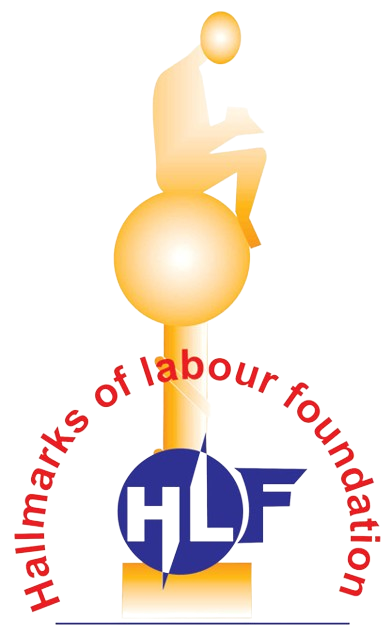
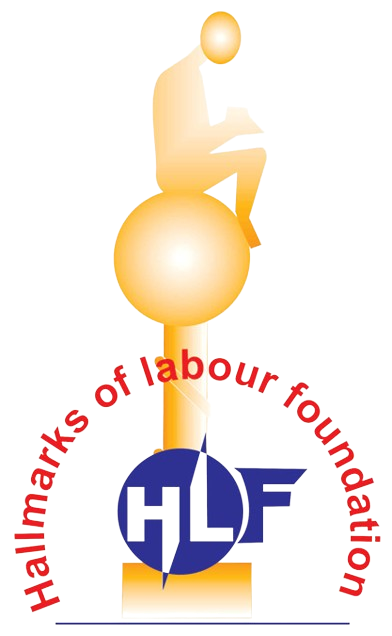
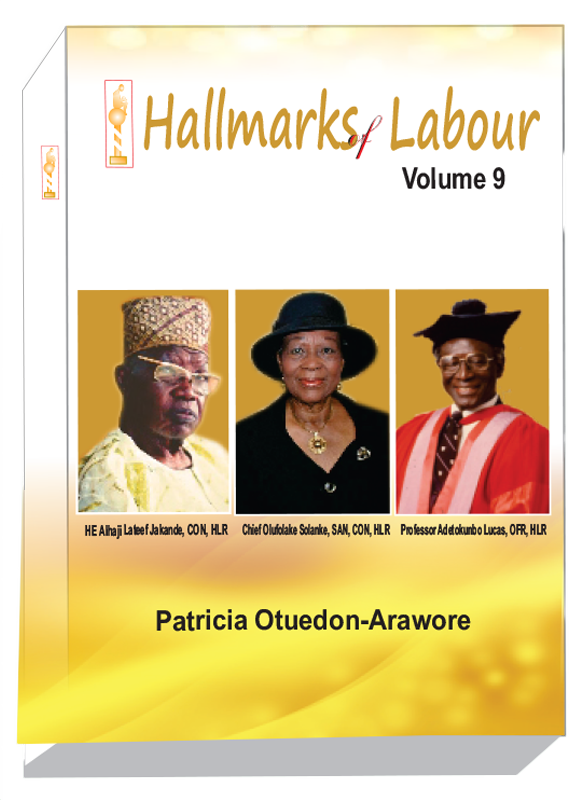
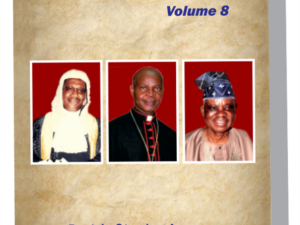
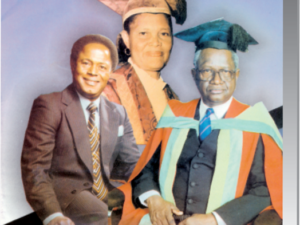
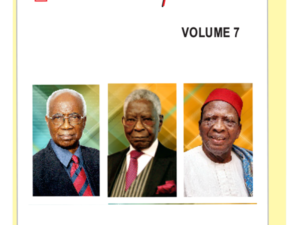
Reviews
There are no reviews yet.